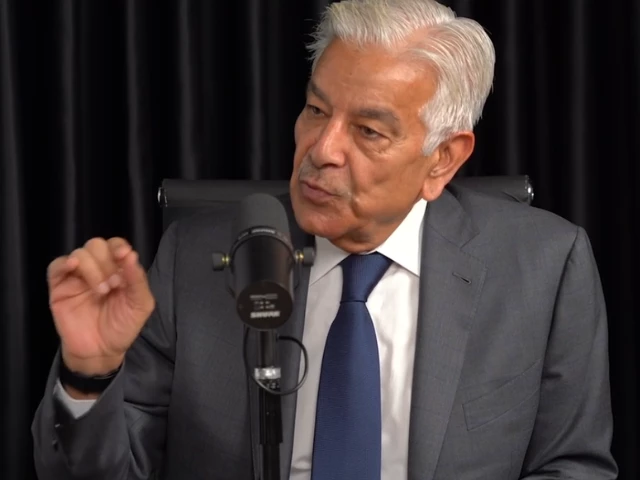Defense Minister Khawaja Asif speaks during an interview with British-American journalist Mehdi Hasan on his show Mehdi Unfiltered. SCREENSHOT
A ceasefire deal between Islamabad and Kabul hinges on the ruling Afghan Taliban’s ability to subdue terrorists attacking Pakistan across their shared border, Defense Minister Khawaja Asif told Reuters on Monday.
“Anything that comes from Afghanistan will be a) violation of this agreement,” said Asif, who led the negotiations with the Kabul regime’s acting defense minister, Mullah Yaqoob Mujahid. “It all depends on this one clause.”
In the written agreement signed by Pakistan, Afghanistan, Turkey and Qatar, it was clearly stipulated that there would be no incursions, the minister said.
“We have a ceasefire agreement as long as there is no violation of the agreement already in force.”
The minister said Tehreek-e-Taliban Pakistan (TTP) was operating from Afghanistan to attack Pakistan “in connivance” with the ruling Taliban, the minister said.
“We were under attack. Our territory was under attack. So we went tit for tat. We paid them with the same coin,” Asif said. “They are in Kabul. They are everywhere. Wherever they are, we will attack them. Kabul is not, you know, a no-go zone.”
The next round of negotiations will take place in Istanbul on October 25 to develop a mechanism on how to enforce the agreement, Asif said.
In a separate interview with Al Jazeera Arabic, Defense Minister Khawaja Asif said the main objective of the ceasefire agreement between Pakistan and Afghanistan was “to eliminate the threat of terrorism.”
Asif said terrorism has been plaguing the Pak-Afghan border areas for a long time and both sides have come to the conclusion that immediate eradication of terrorist elements is essential.
He added that the two countries would make serious and coordinated efforts to combat terrorism, warning that regional peace could face serious threats if the problem was not resolved.
He revealed that the agreement was reached through the mediation of Qatar and Turkey, whose participation constituted a guarantee of the agreement. The minister appreciated the role of Qatari Emir Sheikh Tamim bin Hamad Al Thani and Turkish President Recep Tayyip Erdogan in facilitating the talks.
Asif further said that another meeting is planned next week in Istanbul to finalize the details of the agreement, during which an effective mechanism will be developed to resolve the existing issues between the two countries.
He added that his Afghan counterpart also recognized that terrorism was the main cause of tensions in bilateral relations, an issue that both sides were now determined to resolve.
The defense minister pointed out that Pakistan had suffered immense human and financial losses over the years due to terrorism. However, he expressed optimism about the return of peace and the normalization of relations between Pakistan and Afghanistan.
He said that following the ceasefire, trade and transit activities between the two countries would resume, allowing Afghanistan to use Pakistani ports again.
The minister also clarified that Afghan refugees with valid visas and documents would be allowed to stay in Pakistan, while the repatriation of undocumented refugees would continue.
However, Asif cautioned that it was too early to be satisfied that all the issues had been resolved. “We will have to see in the coming weeks and months how effectively the agreement will be implemented,” he said.
In a separate interview with Arab News, Asif categorically denied speculation that Pakistan’s recent airstrikes in Kabul were carried out at the behest of the United States. “It’s total nonsense and nothing more,” he said.
He questioned why Pakistan would act on behalf of others, pointing out that the country had already endured decades of involvement in Afghan affairs.
“We want to stay away and live as good neighbors. We don’t want to be involved in Afghan affairs,” Asif said, adding that Pakistan had “no business” in the Kabul regime’s relations with India or any other country.
“Absolutely not. Anything they want to do on their own territory and which does not spill over into our territory does not become our business,” he said.
(With contribution from agencies)




